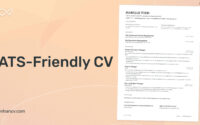Differences Between A Recruitment Chat And A Job Interview
If you are a job seeker, you must have received an invite for an interview or chat following a job application at one point or the other. For many, they think such a chat is the same as an interview. Well, they are not the same, and if you are curious enough to find out, here is a piece that demystifies the concept. Take a moment to read till the end.

Recruitment chat
A recruitment chat is a conversation between a recruiter or representative from a company and a potential candidate for a position. The purpose of the chat is usually to build a relationship with the candidate and to provide more information about the company or the position. Unlike a job interview, the recruitment chat is less formal and is not designed to assess the candidate’s skills or qualifications for the position.
During a recruitment chat, the recruiter may provide an overview of the company’s culture, values, and mission, as well as information about the position and its responsibilities. The recruiter may also answer any questions that the candidate has about the company or the position and may provide information about the recruitment process and what to expect if the candidate moves forward in the process.
The recruitment chat is often used as a way to build a relationship with the candidate and to provide them with more information about the company or the position, without putting pressure on them to perform or answer specific questions. It can be a useful tool for candidates to learn more about a company and to get a sense of whether or not they would be a good fit for the position.
Job Interview
A job interview is a formal conversation between a candidate and an employer or representative from a company, with the goal of assessing the candidate’s suitability for a particular job. The job interview is a key component of the hiring process and is typically used to evaluate a candidate’s qualifications, experience, skills, and personality to determine if they are a good fit for the job and the company.
During a job interview, the interviewer will typically ask the candidate a series of structured questions designed to assess their qualifications and fit for the job. The questions may cover a range of topics, including the candidate’s work experience, education, skills, strengths and weaknesses, and interest in the job and the company. The interviewer may also ask behavioral or situational questions to assess how the candidate would respond in specific work-related situations.
In addition to asking questions, the interviewer may also provide information about the company and the job and may answer any questions the candidate has about the position or the company. The interview process may also include additional assessments, such as skills tests, personality tests, or reference checks.
The job interview is a critical component of the hiring process, as it allows the employer to assess the candidate’s suitability for the job and the company, and to determine if they would be a good fit for the organization’s culture and values. For the candidate, the job interview provides an opportunity to showcase their skills and experience and to learn more about the company and the position they are applying for.
When Recruiters Use A Recruitment Chat And A Job Interview
The decision to use a recruitment chat or a job interview depends on the specific needs of the company and the stage of the hiring process. Here are some factors that may influence the decision:
Initial screening: Recruitment chats are often used as a screening tool to get to know the candidate and to determine if they would be a good fit for the company. The recruiter may use the information gathered during the chat to determine if the candidate should move on to a formal job interview.
Position level: The level of the position being filled may also influence the decision to use a recruitment chat or job interview. For entry-level or junior positions, a recruitment chat may be sufficient to assess the candidate’s qualifications and fit for the company. For more senior or specialized positions, a job interview is often necessary to evaluate the candidate’s skills and experience in more detail.
The number of candidates: If the company is dealing with a large volume of candidates, a recruitment chat may be a more efficient way to screen candidates and determine which ones should move on to a formal job interview. The recruiter can use the chat to ask initial questions and gather information that can be used to screen candidates.
Company culture: The company’s culture may also influence the decision to use a recruitment chat or job interview. If the company values building relationships and rapport with candidates, a recruitment chat may be a more effective way to engage with candidates and build a relationship. If the company is more formal and structured, a job interview may be a better fit.
Time constraints: If the company is under time pressure to fill a position, a recruitment chat may be a quicker and more efficient way to screen candidates and make decisions. Job interviews can take longer to schedule and conduct, so a recruitment chat may be a better option if the company needs to move quickly.
Type of role: The type of role being filled may also influence the decision to use a recruitment chat or job interview. For roles that require strong communication skills or customer-facing positions, a recruitment chat can be a good way to evaluate the candidate’s communication style and ability to engage with others. For technical roles, a job interview may be necessary to evaluate the candidate’s technical skills and experience.
Candidate availability: If the candidate is not available for an in-person job interview or lives in a different location, a recruitment chat may be a better option to conduct an initial screening. The recruiter can use the chat to ask initial questions and gather information that can be used to assess the candidate’s qualifications and fit for the company.
Budget constraints: If the company has budget constraints or is looking to save costs, a recruitment chat may be a more cost-effective option compared to conducting formal job interviews. This can be particularly important for smaller companies or startups that have limited resources.
It’s important for the recruiter to consider these factors and use their professional judgment to determine the most effective approach for each specific situation. As for the applicant, just stay prepared whether it is a recruitment chat or a job interview.
Differences Between A Recruitment Chat And A Job Interview
Purpose: A recruitment chat is usually the first point of contact between a candidate and the company. The purpose of the chat is to build a relationship with the candidate and to provide them with more information about the company or the position. The recruiter may provide an overview of the company’s culture, values, and mission, as well as information about the position and its responsibilities. The recruiter may also answer any questions that the candidate has about the company or the position.
A job interview, on the other hand, is designed to evaluate the candidate’s suitability for the position. The purpose of the interview is to determine if the candidate has the necessary skills, experience, and qualifications for the job. The interviewer will ask questions to assess the candidate’s past work experience, skills, and qualifications, and to determine if they would be a good fit for the company and the position.
Level of formality: Recruitment chats are often less formal than job interviews. They are usually more of a casual conversation, designed to provide information and answer questions. The tone of the conversation is generally more relaxed, and the recruiter may use a more informal approach to build rapport with the candidate.
Job interviews, on the other hand, are usually more formal and follow a structured format. The interviewer will usually start by introducing themselves and explaining the purpose of the interview. They will then ask a series of structured questions to assess the candidate’s qualifications and fit for the position.
Content: The content of a recruitment chat is focused on providing information and answering questions about the company or position. The recruiter will provide an overview of the company’s culture, values, and mission, as well as information about the position and its responsibilities. The candidate may also ask questions to get a better understanding of the company and the position.
In a job interview, the content is focused on evaluating the candidate’s qualifications and fit for the position. The interviewer will ask questions to assess the candidate’s past work experience, skills, and qualifications, and to determine if they would be a good fit for the company and the position.
Assessment: A recruitment chat is not designed to assess the candidate’s skills or qualifications for the position. The purpose of the chat is to build a relationship with the candidate and to provide information about the company or position. The recruiter may use the information gathered during the chat to determine if the candidate would be a good fit for the company and if they should move on to a formal job interview.
A job interview, on the other hand, is specifically designed to assess the candidate’s suitability for the job. The interviewer will ask questions to evaluate the candidate’s skills, experience, and qualifications for the position.
Outcome: The outcome of a recruitment chat may or may not lead to a formal job interview. The purpose of the chat is to provide information about the company or position and to build a relationship with the candidate. The recruiter may use the information gathered during the chat to determine if the candidate would be a good fit for the company and if they should move on to a formal job interview.
In summary, a recruitment chat is a more informal conversation designed to provide information and build a relationship with the candidate, while a job interview is a more structured and formal process designed to evaluate the candidate’s qualifications and fit for the position. If you have learned something new in this piece, please feel free to share it in the comment box below and share this with your loved ones.
Do you like the article? Please comment, and share with loved ones. You can as well buy me a drink through this link. You can read more about interview here.




Thanks for sharing
Nice write up. Keep it up!